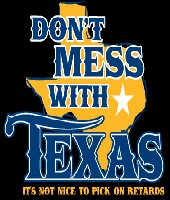UK Intelligence and Security Services
UK INTELLIGENCE AND SECURITY SERVICES
The United Kingdom has three intelligence and security services,
collectively known as the Agencies - the Security Service, SIS and
GCHQ. The operations and functions of all three have been placed
on a statutory basis, GCHQ and SIS by the provisions of the
Intelligence Services Act 1994, and the Security Service under the
Security Service Acts 1989 and 1996.
Another important contributor to the central intelligence machinery
is the Defence Intelligence Staff, which is an integral part of the
Ministry of Defence.
A brief summary of their history and functions is given below:
i. SECURITY SERVICE
The Security Service, also known as MI5, originated in 1909 as the
internal arm of the Secret Service Bureau, under Army Captain
(later Sir) Vernon Kell, tasked with countering German espionage.
In 1931 it assumed wider responsibility for assessing threats to
national security which included international communist
subversion and, subsequently, fascism. In 1952, in the early stages
of the Cold War, the work of the Service and the responsibility of
the Director General were defined in a Directive many of whose
provisions were later incorporated in the Security Service Act 1989.
Today the Security Service Act forms the statutory basis for the
Service, which is placed under the authority of the Home Secretary.
The Act also sets out the functions of the Service, as well as certain
controls and oversight arrangements. As the UK's domestic security
intelligence agency the Service's purpose is to protect the State
against substantial, covertly organised threats, primarily from
terrorism, espionage and subversion. Most recently, since the
passing of the Security Service Act 1996, its role has been
expanded to provide support to law enforcement agencies in the
field of organised crime. Within the UK intelligence machinery, the
Service's role is:
to investigate threats by gathering, analysing and assessing intelligence;
to counter specific threats by taking action, where
appropriate in conjunction with others; and
to advise Government and others as necessary on the nature of the threat,
and on relevant protective security measures.
The Security Service has no executive powers; cases likely to result
in prosecution are co-ordinated closely with the police, or HM
Customs and Excise who take the necessary action.
The present Director General of the Security Service is Mr Stephen
Lander, who took office in April 1996.
The Service is based at Thames House in London.
A separate booklet is available from HMSO describing the work of
the Security Service in more detail.
ii. SIS
The Secret Intelligence Service, sometimes known as MI6, similarly
originated in 1909 as the Foreign Section of the Secret Service
Bureau, under RNR Commander, later Captain, Sir Mansfield
Cumming, which was responsible for gathering intelligence
overseas. By 1922 Cumming's section had become a separate
Service with the title SIS. Cumming signed himself 'C'; his
successors have done so ever since.
The Special Operations Executive (SOE) was established in 1940,
partly from the then Section D of SIS. After the War it was
disbanded and some of its members were reabsorbed into SIS.
With the passing of the Intelligence Services Act, SIS was placed
on a statutory footing under the Foreign & Commonwealth
Secretary to whom it is responsible for all aspects of its work. The
Act defines the functions of the Service and the responsibilities of
its Chief, as well as establishing control and oversight
arrangements. The Service's principal role is the production of
secret intelligence in support of Her Majesty's Government's
security, defence, foreign and economic policies within the
framework of requirements laid upon it by the JIC and approved by
Ministers. It meets these JIC requirements for intelligence gathering
and other tasks through a variety of sources, human and technical,
and by liaison with a wide range of foreign intelligence and
security services. Specific operations are subject to longstanding
procedures for official and ministerial clearance.
The present Chief of the SIS, who took up his appointment in
September 1994, is Sir David Spedding.
SIS is based at Vauxhall Cross in London.
iii. GCHQ
GCHQ provides Government Departments and Military Commands
with signals intelligence (Sigint) in accordance with requirements
laid upon it by the JIC (as for SIS) in support of HMG's security,
defence, foreign and economic policies. GCHQ was established in
1946 as the post-War successor of the Government Code and
Cipher School which had been the central Sigint organisation since
1919 and had made an outstanding contribution to the War effort at
Bletchley Park, for example by decrypting German messages
enciphered by the ENIGMA machine. In 1953 GCHQ moved to two
sites on the outskirts of Cheltenham, where it continues to be
based. The Director of GCHQ is responsible to the Foreign &
Commonwealth Secretary for all aspects of its work.
GCHQ derives signal intelligence by monitoring a variety of
communications and other signals, such as radars. For this purpose
it controls and administers the Composite Signals Organisation
which operates from a number of locations in the UK and overseas.
Like SIS and the Security Service, it also works in liaison with a
range of foreign intelligence and security services.
In addition to providing signals intelligence, GCHQ also provides
advice and assistance to Government Departments and the Armed
Forces on the security of their communications and information
technology systems. This task is undertaken by the
Communications Electronics Security Group of GCHQ, who work
closely with their customers and industry, as well as with the
Security Service, to ensure that official information in such systems
is properly protected.
The present Director of GCHQ, who took office in July 1996, is Mr
David Omand.
iv. Defence Intelligence Staff
The Defence Intelligence Staff, part of the Ministry of Defence and
funded in the usual way within the defence vote, is also an essential
element of the central intelligence machinery. It was created in
1964 by the amalgamation of all three service intelligence staffs
and the civilian Joint Intelligence Bureau to form an integrated
body able to serve the Ministry of Defence and the Armed Forces
and other Government Departments. The task of the DIS is to
analyse information from a wide variety of sources, both overt and
covert. The Chief of Defence Intelligence (CDI) is responsible for
the work of the DIS and is charged also with the overall direction
of intelligence within the defence community. The current CDI is
Lieutenant General Sir John Foley.
|

